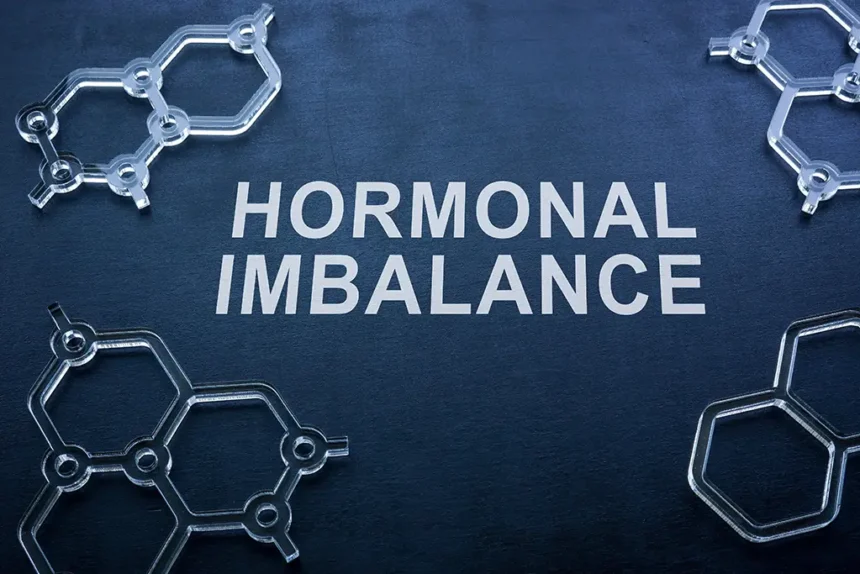Hormonal imbalance can affect your mood, weight, energy, and more. Recognizing the early signs can help you act before bigger health problems develop.
Introduction
Hormones are your body’s chemical messengers. They are produced by glands such as the thyroid, adrenal glands, pancreas, and reproductive organs and circulate through the bloodstream to regulate everything from metabolism and mood to growth, reproduction, and sleep.
Even tiny changes can have a significant impact on your overall health. Hormonal imbalances can occur at any age or gender, and while some alterations are transient, others may indicate chronic concerns that require care.
Recognizing the first signs of imbalance allows you to seek expert help sooner, resulting in more effective treatment and improved long-term health outcomes.
Why Early Recognition Matters
When hormones initially begin to shift out of balance, the symptoms may be modest enough to be dismissed as stress, weariness, or lifestyle changes.
However, because the endocrine system is so interrelated, one malfunctioning hormone can cause difficulties for others, resulting in a chain reaction.
For example, chronic stress can raise cortisol levels, which influence insulin and thyroid hormones, resulting in weight gain, mood swings, and energy dips.
Early detection not only keeps symptoms from deteriorating, but also allows healthcare experts to discover the underlying reason and restore balance before consequences such as diabetes, infertility, or chronic exhaustion develop.
MUST READ:8 Best Morning Drinks to Kickstart Metabolism
Common Early Signs of Hormonal Imbalance
Hormonal shifts can start quietly, but their effects accumulate over time. Catching the signs early can make a world of difference.
1. Unexplained Weight Changes
A rapid increase or decrease in weight without a significant lifestyle change is a common indicator of hormonal imbalance.
Low thyroid hormone (hypothyroidism) can inhibit metabolism, resulting in weight gain, whereas hyperthyroidism can produce rapid weight reduction despite a normal or increased appetite.
Cortisol, insulin, and sex hormones such as estrogen and testosterone all influence how your body stores fat and builds muscle. If you exercise consistently and eat well but still have stubborn belly fat or muscle loss, hormonal changes could be the cause.
2. Persistent Fatigue
Feeling weary on occasion is normal, but if weariness persists after enough rest, it may indicate a breakdown in hormones that regulate energy production.
Low thyroid hormones can slow down your body’s operations, making even routine chores feel exhausting.
Chronic stress can generate high cortisol levels, leaving you feeling “wired but tired,” whilst insulin abnormalities can cause changing blood sugar, resulting in energy dips. If you are frequently exhausted for no apparent cause, you should have your hormone levels examined.
3. Mood Swings and Irritability
Hormones such as serotonin, dopamine, estrogen, progesterone, and testosterone have direct effects on brain chemistry.
When these levels fluctuate, mood stability is one of the first to change. Stress-induced high cortisol levels can exacerbate anxiety, whereas low estrogen or testosterone levels might produce irritation and lack of drive.
Hypothyroidism is frequently associated with sadness, while hyperthyroidism is associated with anxiety or restlessness. If your mood swings are unusual, frequent, and unexplained, a hormonal cause may be worth investigating.
4. Changes in Skin, Hair, and Nails
Hormonal imbalances might manifest in your skin before you notice other symptoms. Androgens, such as testosterone, can cause acne by increasing oil production, but low estrogen levels can cause skin to become dry and thin.
Excess cortisol can slow wound healing, and thyroid issues can cause hair loss or brittle nails. Patchy hair loss or rapid changes in skin color may indicate underlying endocrine concerns such as adrenal or pituitary abnormalities.
5. Sleep Problems
Melatonin, cortisol, and sex hormones all affect sleep-wake cycles. High cortisol levels at night can make it difficult to fall asleep, whereas low levels of progesterone or testosterone may impair sleep quality.
Thyroid hormone abnormalities might result in either restlessness or excessive drowsiness. Persistent difficulty falling or staying asleep, especially if combined with exhaustion during the day, should prompt a detailed examination of your hormone status.
6. Digestive Changes
The gut and endocrine systems are intricately linked. Elevated cortisol can impede digestion, causing bloating or constipation, whereas insufficient thyroid hormones can have the same effect.
In contrast, high estrogen levels may cause water retention and bloating. Insulin resistance can cause cravings and inconsistent eating habits, impacting digestion over time.
Hormones may be the secret element causing changes in your bowel habits or hunger that are not related to nutrition.
7. Reproductive and Sexual Health Changes
For women, irregular menstrual cycles, larger or lighter periods, or severe PMS symptoms may indicate abnormalities in estrogen, progesterone, or thyroid hormones.
For men, low testosterone levels can lead to decreased libido, erectile dysfunction, and muscle loss.
When hormone levels are out of balance, both sexes may feel decreased fertility, changes in sexual desire, or discomfort during intimacy. These changes frequently happen gradually, making them easy to miss until they become more disruptive.
When to See a Doctor
If you notice several of these symptoms at once or if they persist for more than a few weeks, it’s time to seek medical advice. See a healthcare provider if you experience:
- Rapid, unexplained weight loss or gain
- Severe or worsening fatigue
- Mood changes that affect daily life
- Unusual hair loss or skin changes
- Changes in menstrual cycles or sexual function
Final Thoughts
Hormonal imbalances are more widespread than most people know, and they can impact nearly every organ in the body. Because symptoms sometimes overlap with other health concerns, it is easy to overlook the early warning indications.
Paying attention to small changes in your body, particularly when many symptoms emerge together, might help you get the proper diagnosis and treatment more quickly.
Most hormonal imbalances can be successfully controlled with suitable lifestyle changes, medical assistance, and, in some cases, specialized therapy, restoring energy, mood, and overall well-being.


